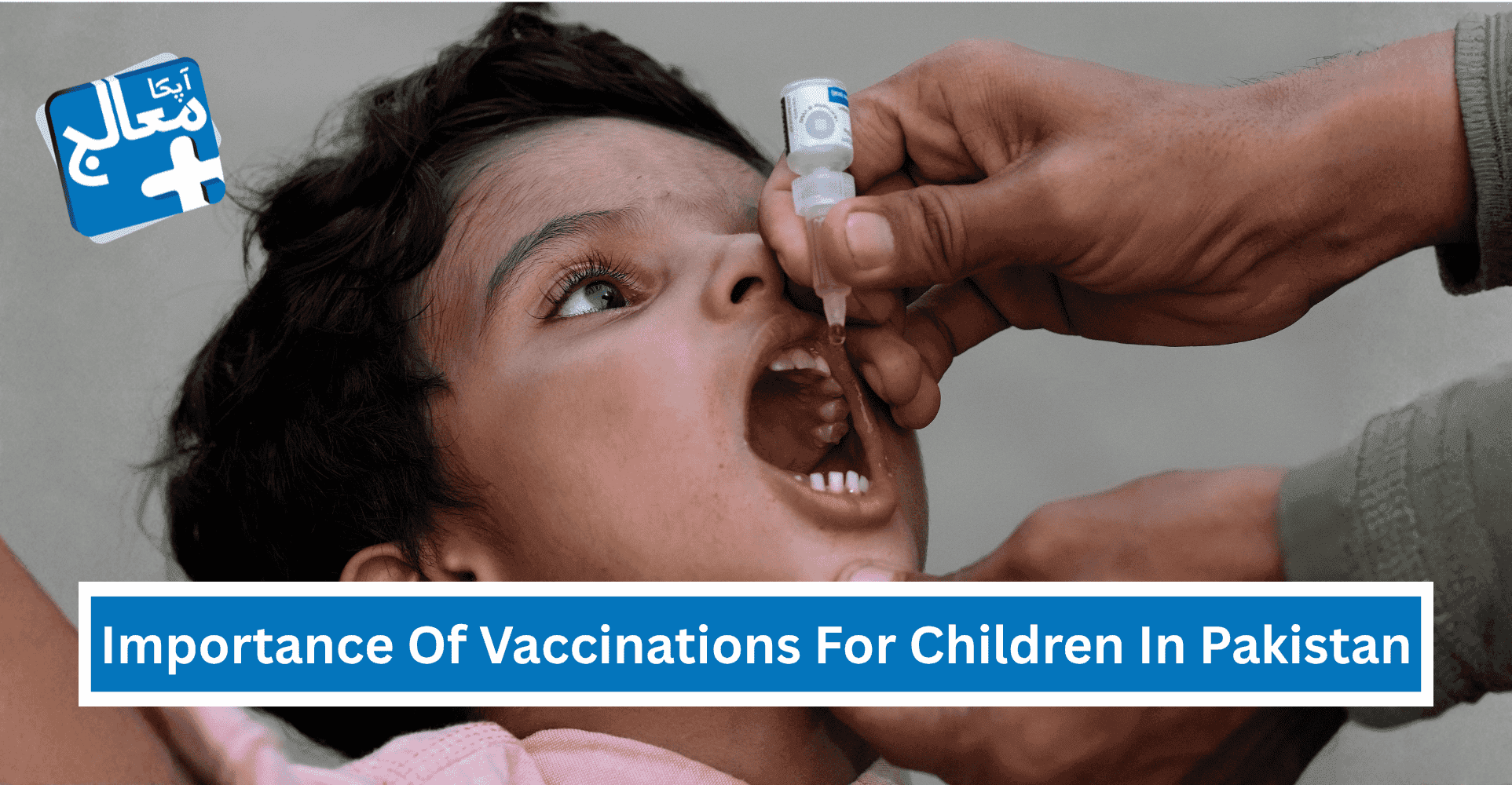The Importance Of Vaccinations For Children In Pakistan - 2025 Guide

Vaccinations are necessary for protecting children's health in Pakistan in 2025, where preventable illnesses continue to be an important issue. Many parents are afraid to vaccinate their children because of misconceptions or are still unaware of the advantages of childhood vaccines, despite improvements in healthcare.
The purpose of this blog is to inform parents about the vital function that vaccines play in protecting their children from serious illnesses and ensuring their health in the future.
Also learn: "How Vitamin D Deficiency Affects Children - Signs, Causes, & Treatment"
Understanding the Importance of Vaccinations in 2025

Vaccines protect kids from possibly fatal diseases, including whooping cough, diphtheria, measles, and polio, which can cause serious problems. Vaccination protects individual children but also, by preventing outbreaks, improves the general health of communities. Immunization against disease is especially important in Pakistan, where access to modern medical care can be limited.
Common Vaccine-Preventable Diseases in Pakistan

Several serious childhood diseases can be effectively prevented with vaccines:
-
Polio: Even though Pakistan has made progress in eliminating polio, the illness is still a worry. The only way to remove it entirely from the nation is through vaccination.
-
Measles: Measles is still an extremely infectious disease that affects young people in Pakistan and frequently results in effects like pneumonia or brain enlargement.
-
Diphtheria and Tetanus: Although vaccinations offer lifetime protection, some bacterial illnesses have been known to be deadly.
-
Hepatitis B: A chronic liver infection that can lead to liver cancer, preventable through timely vaccination.
Overcoming Vaccination Hesitancy
Vaccines are readily available, yet some parents are afraid to vaccinate their children because of false information and myths. We must address these concerns for vaccination efforts to be successful:
-
Vaccine Safety: Extensive testing is conducted on vaccines to guarantee their safety and effectiveness. By teaching parents about this, worries about negative consequences can be reduced.
-
Religious Concerns: Some families think vaccinations go against the beliefs they hold. It is the shared duty of religious academics and medical professionals to raise awareness of the value of vaccination in religious and cultural contexts.
You may also like: "10 Common Childhood Illnesses In Pakistan & How To Treat Them?"
National Immunization Programs: Ensuring Coverage

The Expanded Program on Immunization (EPI) in Pakistan offers children free vaccinations against several diseases that can be prevented. However, complete coverage suffers in rural regions due to poor awareness and access. The vaccination treatment that EPI recommends for children should be followed by parents. It includes shots for measles, polio, and other serious illnesses.
Role of Parents in Protecting Children's Health
Parents must take responsibility for vaccinating their children according to the government schedule since they are their children's primary caregivers. To make the process more convenient, vaccination clinics, hospitals, and even mobile health units are easily accessible. Parents who vaccinate their children support national efforts to fight preventable diseases in addition to the health of their own families.
Also, go through: "How To Choose The Right Pediatrician For Your Child In Pakistan?"
Conclusion
In Pakistan, vaccinations are a vital resource for protecting children's health. Parents may try to protect their children from harmful diseases and help create a better, disease-free future for the entire nation by making sure that every child gets their vaccinations on schedule. To make sure every child in Pakistan grows up strong and healthy, immunization programs, education, and active engagement are important.
If you want to learn more about diseases and conditions in children, you can consult the best pediatrician near you by visiting Apka Muaalij. For quick advice or to book an appointment, call 0423-2377001 and connect with a certified doctor through Apka Muaalij, Pakistan’s trusted telehealth platform.

Dr. Muhammad Usama, RPh
Dr. Muhammad Usama, RPh, is a Senior SEO Content Writer with 6 years of experience, primarily contributing to healthcare and wellness. He crafts engaging, research-driven, and SEO-optimized blogs that simplify complex concepts for readers. Through his unique blend of expertise in content creation, SEO copywriting, and marketing, Dr. Usama is dedicated to producing impactful content that raises awareness, promotes wellness, and supports patient-centered initiatives.